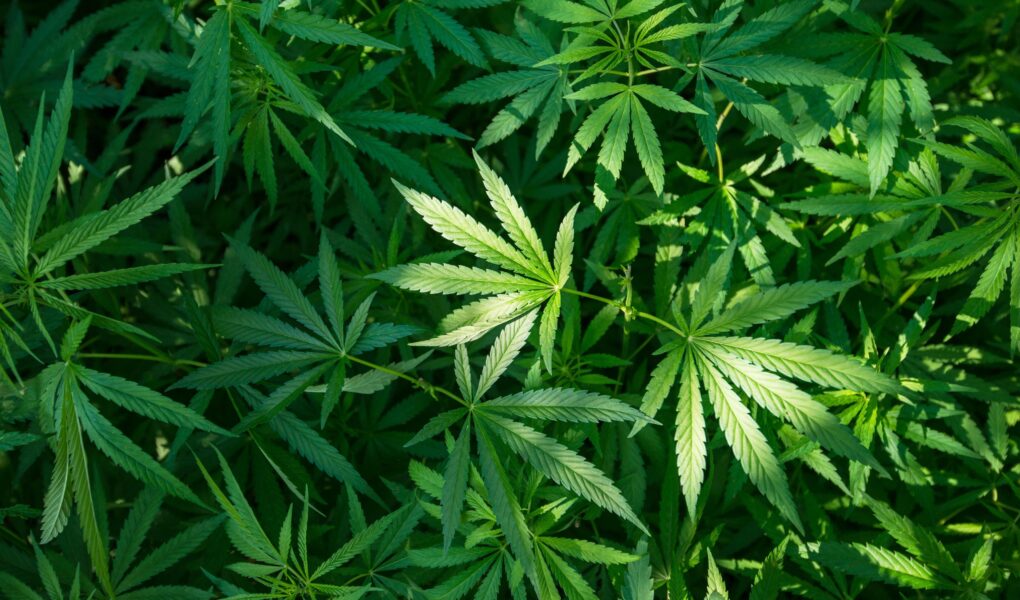In recent years, the topic of marijuana has shifted from the fringes of society to a focal point of medical research and public debate. As more states embrace legalization and the therapeutic potential of cannabis comes to light, curiosity about its effects on various health conditions has surged. One question that has sparked interest among both researchers and the general public is whether marijuana can lower blood pressure. This inquiry combines the intricacies of human physiology with the evolving landscape of cannabis science, drawing us into a nuanced discussion about a substance that has been both revered and stigmatized. In this article, we will delve into the existing research, explore the potential mechanisms at play, and consider the implications for those looking to manage their blood pressure in the ever-changing world of health and wellness.
Table of Contents
- Exploring the Connection Between Marijuana and Blood Pressure Regulation
- The Science Behind Cannabinoids: Understanding Their Impact on Cardiovascular Health
- Potential Benefits and Risks of Using Marijuana for Blood Pressure Management
- Practical Recommendations for Safe Consumption and Lifestyle Integration
- Q&A
- The Conclusion
Exploring the Connection Between Marijuana and Blood Pressure Regulation
Research surrounding the impact of marijuana on blood pressure regulation presents a fascinating intersection of botany and physiology. Some studies suggest that certain cannabinoids, like CBD (cannabidiol), may induce a calming effect on the body, potentially leading to reduced anxiety and subsequently lower blood pressure. This is believed to be connected to the body’s endocannabinoid system, which plays a crucial role in maintaining homeostasis, including cardiovascular function. In a world where stress often precipitates health issues, the therapeutic potential of cannabis in managing stress-related hypertension is an area worthy of further exploration. Notable findings include:
- Relaxation of blood vessels: Cannabinoids may help in vasodilation.
- Decreased anxiety: Individuals report lower anxiety levels, aiding heart health.
- Body’s response: Changes in heart rate may influence overall pressure levels.
However, the relationship is nuanced. While some users report improved blood pressure readings due to the calming effects of marijuana, others might experience the opposite effect, particularly with higher THC (tetrahydrocannabinol) doses, which can mimic the effects of anxiety or lead to increased heart rate. A study published in leading medical journals indicates that the individual response can vary significantly based on factors such as dosage, frequency of use, and the user’s own physiological makeup. To highlight these distinctions, consider the following table:
| Dosage | Effect on Blood Pressure | Additional Notes |
|---|---|---|
| Low | Potentially lowering | Calming responses reported |
| Moderate | Variable | Mixed results in studies |
| High | Potentially raising | Anxiety and increased heart rate noted |
The Science Behind Cannabinoids: Understanding Their Impact on Cardiovascular Health
Recent studies have begun to uncover the intricate role cannabinoids play in cardiovascular health. These naturally occurring compounds found in marijuana, particularly THC (tetrahydrocannabinol) and CBD (cannabidiol), have generated interest for their potential to influence blood pressure. Preliminary research indicates that while THC may initially increase heart rate and blood pressure shortly after use, CBD has shown promise in reducing blood pressure in certain populations. Some of the mechanisms through which cannabinoids can affect the cardiovascular system include:
- Vasodilation: Cannabinoids may help widen blood vessels, improving blood flow.
- Inflammation Reduction: Cannabinoids can lower inflammation levels, which is beneficial for heart health.
- Anxiety Reduction: By mitigating anxiety, cannabinoids may indirectly support stable blood pressure levels.
As more evidence unfolds, the nuances of how cannabinoids interact with cardiovascular health remain a focal point of research. For instance, a study observed that individuals with varying cardiovascular profiles responded differently to cannabinoid therapy. This tailored effect is critical, as illustrated in the following table:
| Cannabinoid Type | Effect on Blood Pressure | Population Studied |
|---|---|---|
| THC | Initial Increase | Healthy adults |
| CBD | Potential Decrease | Hypertensive patients |
Understanding these interactions is vital for those considering cannabinoids as a therapeutic option, particularly for individuals managing their cardiovascular health. As research progresses, it will shed more light on appropriate use and dosage, guiding patients and healthcare providers in making informed decisions.
Potential Benefits and Risks of Using Marijuana for Blood Pressure Management
Exploring the use of marijuana for blood pressure management reveals potential benefits that some users and studies have pointed out. Among these advantages are:
- Vasodilation: Certain cannabinoids, particularly THC, may promote dilation of blood vessels, which could lead to lowered blood pressure.
- Stress Relief: The calming effects of marijuana might help reduce anxiety and stress, contributing to lower systolic and diastolic pressures.
- Improved Sleep: Better sleep patterns, aided by marijuana use, can positively affect overall cardiovascular health.
However, the use of marijuana is not without risks, particularly for individuals managing blood pressure. Key concerns include:
- Variable Effects: Cannabis might have different impacts on different individuals, sometimes causing blood pressure to spike instead of lower.
- Long-term Health Consequences: Chronic use may lead to cardiovascular complications or other health issues that could counteract any potential benefits.
- Drug Interactions: Marijuana can interact with common antihypertensive medications, potentially diminishing their effectiveness or causing adverse reactions.
| Aspect | Potential Positive Effects | Potential Risks |
|---|---|---|
| Vasodilation | May help lower blood pressure | Can increase blood pressure in some users |
| Stress Reduction | Decreases anxiety and stress | Variable effectiveness depending on the individual |
| Sleep Quality | May improve overall sleep | Potential for dependency or altered sleep cycles |
Practical Recommendations for Safe Consumption and Lifestyle Integration
For those considering incorporating marijuana into their lifestyle for potential blood pressure benefits, it is essential to prioritize safety and moderation. First, consult with a healthcare professional to discuss any underlying health conditions or medications you may be taking, as marijuana can interact with various prescriptions. When choosing a consumption method, consider starting with low-THC strains to gauge your body’s response. Additionally, be mindful of the environment where you consume marijuana; a calm, familiar setting can enhance the experience and help you monitor its effects on your body.
Integrating marijuana safely into your routine can involve establishing specific strategies that promote positive results. Here are some lifestyle tips to consider:
- Maintain hydration; drink plenty of water before and after consumption.
- Practice mindfulness techniques to better understand your body’s reaction.
- Consider light exercise post-consumption, like walking, to support circulation.
- Use a journal to track your experiences, including strain type, dosage, and effects.
| Consumption Method | Potential Benefits |
|---|---|
| Edibles | Long-lasting effects; discreet use |
| Vaping | Quick onset; less odor |
| Tinctures | Precise dosing; easy to use |
Q&A
Q&A: Does Marijuana Lower Blood Pressure?
Q1: What is the relationship between marijuana and blood pressure?
A1: The relationship between marijuana and blood pressure is complex and varies from person to person. Some studies suggest that certain compounds found in marijuana, specifically cannabidiol (CBD), may have a calming effect that could lead to lower blood pressure. However, THC (tetrahydrocannabinol), the psychoactive component, may initially raise blood pressure in some individuals before leading to relaxation.
Q2: Are there specific strains of marijuana that might help with blood pressure?
A2: While there isn’t a one-size-fits-all answer, strains high in CBD and lower in THC are often considered more beneficial for those looking to manage blood pressure levels. Indica strains are typically associated with relaxation and could be more suitable for those seeking to lower their blood pressure, but personal responses can vary widely.
Q3: Is smoking marijuana the best way to use it for blood pressure management?
A3: Smoking may not be the best option for everyone, especially for those with preexisting respiratory conditions. Alternatives like vaporization, edibles, or oils can provide similar effects without the potential harm associated with inhaling smoke. It’s important to choose a method that suits your health needs and preferences.
Q4: Can marijuana negatively affect blood pressure in some users?
A4: Yes, for some individuals, especially those who are inexperienced or consume high doses, marijuana can lead to an increase in heart rate and temporary spikes in blood pressure. This is particularly pronounced immediately after consumption. Therefore, moderation and caution are key.
Q5: Should individuals with hypertension use marijuana for treatment?
A5: Individuals with hypertension should consult a healthcare professional before using marijuana as a treatment option. While some evidence suggests potential benefits, the response to marijuana varies significantly among individuals, and it may not be suitable for everyone.
Q6: Are there alternative treatments for managing blood pressure?
A6: Absolutely! There are various lifestyle changes and medical treatments available for managing blood pressure, including regular exercise, a balanced diet, stress management techniques, and prescribed medications. It’s crucial to explore all avenues with the guidance of a healthcare provider.
Q7: What does current research say about marijuana and blood pressure?
A7: Current research is ongoing, and while some studies point toward potential benefits of CBD in reducing blood pressure, conclusions are not definitive. It’s essential to stay updated with credible studies and consult healthcare providers for reliable advice tailored to individual health needs.
Q8: What else should users consider before using marijuana for blood pressure issues?
A8: Users should consider their overall health history, any existing medications, and possible side effects of marijuana. Additionally, understanding the legal status and quality of the product being used is crucial to ensure a safe experience. Always prioritize safety and informed choices when exploring cannabis for health purposes.
Remember, the effects of marijuana can vary widely among individuals, so it’s vital to approach its use for blood pressure management with caution and informed awareness!
The Conclusion
the relationship between marijuana and blood pressure is a complex and evolving subject, inviting both curiosity and caution. While some studies suggest that certain compounds in cannabis may have a relaxing effect on the cardiovascular system, allowing for a potential temporary drop in blood pressure, the long-term effects remain less understood. As research continues to unfold, it is essential for individuals to approach this topic with a balanced perspective, weighing the potential benefits against the risks. Whether you’re a patient exploring alternative therapies or simply a curious mind seeking clarity, remember that informed decisions are the cornerstone of health. Navigating this nuanced landscape requires not just knowledge, but also a commitment to understanding the myriad factors that contribute to our well-being. As the conversation around cannabis evolves, staying updated and consulting healthcare professionals will empower you to make choices that suit your unique health journey.



